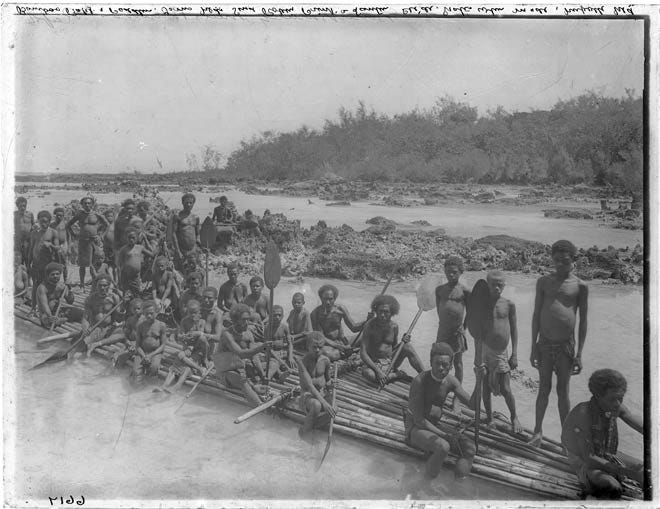Infinite Voyage of the Navigational Mind
How did primitive seafaring shape us as a species?
Reposted from 10 June 2022, when I had 127 subscribers. Now going behind the paywall.
In “Around Cape Horn,” a video produced by Mystic Seaport in 1980, Captain Irving Johnson narrates film footage from his first voyage on board the SS Peking, a four-masted, steel-hulled barque, during 1929. The largest ship in the world of its kind at that time, the Peking was entirely sail-powered, requiring scores of sailors to manage five tons of canvas sheeting at extraordinary risk through the stormiest waters on earth.
These “clipper ships” were the most advanced sailing technology ever invented before steam power finished replacing wind as the chief form of propulsion for shipping. As such, they represent the final form of a technological development track stretching back 800,000 years or more to a time before Homo sapiens even existed. Taking this longue durée view of human seafaring history, the Peking appears to be a highly advanced evolutionary adaptation of the humans aboard her.
If Captain Johnson sailed in the same water as ancient hominins and on the same winds, perhaps they had the same purposes, and is fair to ask how much of the human mind has been shaped by evolution on the water.



